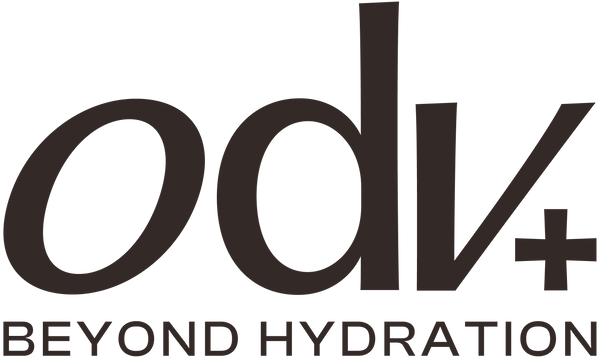
Hydration and Brain Fog
Share
Hydration and Brain Fog: What Your Brain Really Needs
We’ve all had days when our mind feels like it’s moving through a fog - words don’t come easily, focus is gone, and energy is flat. While many factors can cause brain fog, one of the most overlooked is hydration at the cellular level.
Your brain is about 75% water, and even mild dehydration can impair mental clarity, memory, and reaction times. But hydration isn’t just about drinking water - it’s about ensuring that your cells have the right balance of electrolytes, energy cofactors like NAD⁺, and key vitamins that keep your brain firing on all cylinders.
How Dehydration Impacts Brain Function
When you don’t drink enough fluids, your blood volume decreases, making it harder for oxygen and nutrients to reach your brain. This can lead to:
- Slower cognitive processing
- Reduced memory recall
- Difficulty focusing and “mental fatigue”
Studies have shown that even a 1-2% drop in body water can negatively affect cognitive performance and mood.
Why Electrolytes and Cellular Hydration Matter
Electrolytes like sodium, potassium, and magnesium are essential for nerve signaling and brain communication. Without enough of these minerals, your neurons literally can’t fire properly, which can worsen symptoms of brain fog.
But hydration isn’t only about balancing fluids. Your cells need the ability to absorb and use that hydration effectively - which brings us to NAD⁺.
NAD⁺ and Cellular Energy for the Brain
NAD⁺ (nicotinamide adenine dinucleotide) is a coenzyme found in every cell, and it plays a key role in converting nutrients into energy (ATP). The brain, which uses about 20% of your body’s energy, is particularly dependent on healthy NAD⁺ levels.
When NAD⁺ levels drop (which happens with age, stress, and poor sleep), brain cells can struggle to produce the energy they need, resulting in fatigue and mental sluggishness.
Vitamin B Complex and Mental Clarity
B vitamins, especially B1 (thiamine) and B3 (niacin), are essential for brain function:
-
B1 (Thiamine) supports the nervous system and cognitive performance.
- B3 (Niacin) helps convert food into energy and supports normal psychological function.
A lack of B vitamins can worsen fatigue and mental fuzziness, even if hydration is adequate.
Hydration for Mental Performance: The Big Picture
True mental clarity requires more than just water. Optimal brain hydration comes from:
-
Fluids to prevent dehydration
-
Electrolytes for nerve and brain signaling
-
NAD⁺ support for cellular energy production
- B vitamins to fuel cognitive processes
By supporting hydration and energy at the cellular level, you’re giving your brain what it needs to stay sharp, focused, and resilient.
References
- Benton D, Young HA. Do small differences in hydration status affect mood and mental performance? Nutrition Reviews. 2015;73(S2):83–96.
- Popkin BM, D’Anci KE, Rosenberg IH. Water, hydration and health. Nutrition Reviews. 2010;68(8):439–458.
- Trammell SA, Schmidt MS, Weidemann BJ, et al. Nicotinamide Riboside is uniquely and orally bioavailable in mice and humans. Nature Communications. 2016;7:12948.
- Kennedy DO. B vitamins and the brain: mechanisms, dose and efficacy. Nutrients. 2016;8(2):68.
- Ganio MS, Armstrong LE, et al. Mild dehydration impairs cognitive performance and mood in men. British Journal of Nutrition. 2011;106(10):1535-1543.
